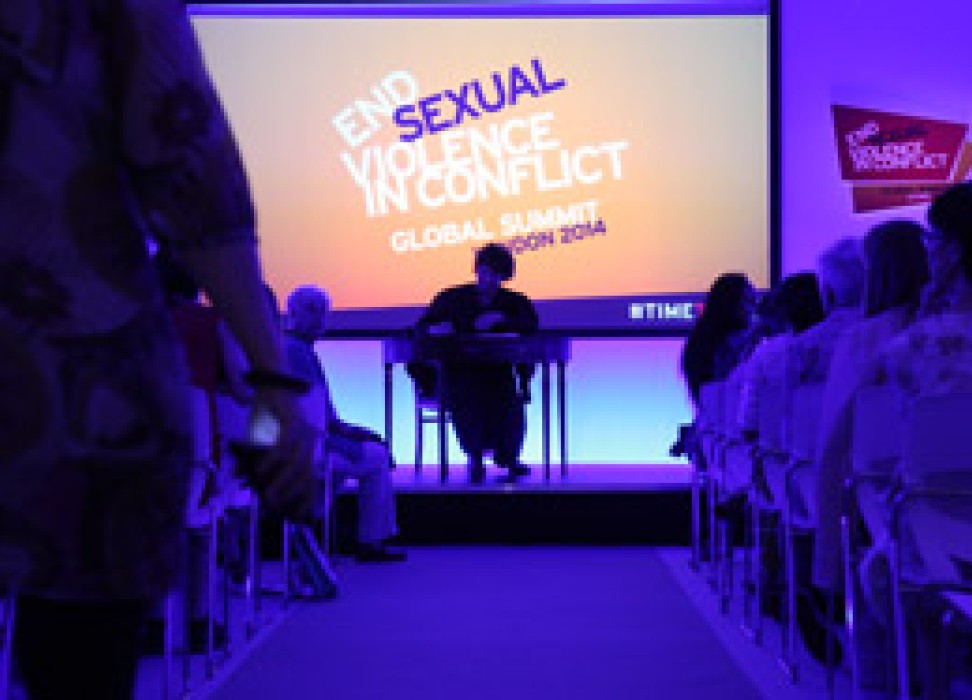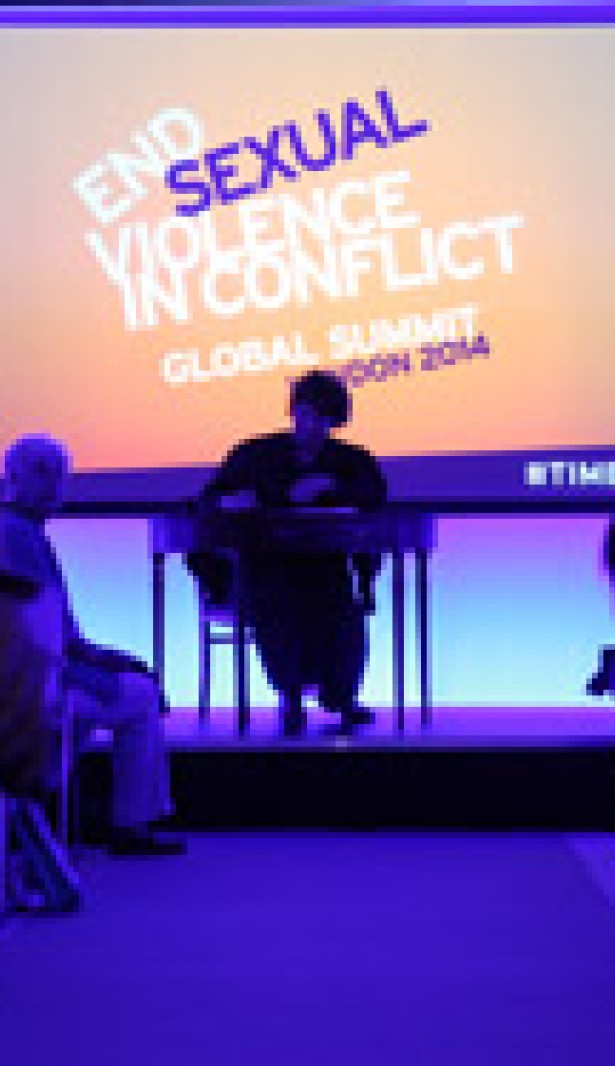Global summit - exceptional opportunity to end sexual violence in conflict
12 June 2014

“This Global Summit to End Sexual Violence in Conflict represents an important opportunity to garner global support and commitments to efforts to ensure that all obstacles on the path to justice and accountability can be removed,” said the UN Deputy High Commissioner for Human Rights, Flavia Pansieri.
Two years of campaigning by the United Kingdom Foreign Secretary, William Hague, and UN Refugee Agency Special Envoy, Angelina Jolie, have led to the hosting of the Summit in London from 10-13 June that aims to translate the UN Declaration of Commitment to End Sexual Violence in Conflict into a programme of practical action.
Four areas are being explored by some 1,200 attendees including heads of States, Government ministers, UN experts and civil society actors: improving investigation and documentation of sexual violence in conflict; assistance and reparations for survivors of sexual violence; ensuring that the responses to sexual and gender-based violence, and the promotion of gender equality are fully integrated in all peace and security efforts; and improving international strategic coordination.
Pansieri chaired the session on reparations for acts of sexual violence committed in conflict.
“[Reparations] can help restore a sense of dignity and justice, address the pernicious consequences of sexual violence in the lives of survivors and help dismantle patterns of gender-based discrimination,” the Deputy High Commissioner said.
She added that the stigma attached to sexual violence, building on pre-existing gender-based discrimination, exposes victims to life-long disempowerment and marginalization. It also creates additional hurdles in the path to justice, thus fuelling a vicious cycle of impunity and social acceptability.
“Reparations have the potential to break that cycle,” she stressed.
The UN Human Rights Office and UN Women jointly developed a Guidance Note of the UN Secretary-General on Reparations for Victims of Conflict-Related Sexual Violence. The Note provides a comprehensive overview of the principles to be applied for that potential to be fully exploited.
Some of these applicable principles include accessible reparations to all survivors, participation of civil society and survivors in the design of reparations programmes, gender-just and adequate assessment of the harm suffered and transformative reparations which help enhance women’s autonomy.
“In the D.R. Congo, the UN Human Rights Office, in collaboration with Brazil, gave five grants to local NGOs to provide survivors with psychosocial therapy, medical insurance, the payment of school fees, and training and supplies for small businesses. The survivors who benefitted from these projects reported how for the first time they had a life project and felt in control of their lives,” the Deputy High Commissioner mentioned.
Pansieri also spoke at a session of the London Summit that explored lessons learned and future strategies for the investigation and documentation of sexual violence in conflict.
“OHCHR’s investigations into sexual violence have been instrumental in promoting protection responses, criminal investigations into specific incidents and legal and institutional reform to overcome obstacles to accountability,” the Deputy High Commissioner said. “Also, in follow-up to the documentation of incidents, the Office of the High Commissioner for Human Rights has provided support for national prosecutions.”
She gave examples of such investigative work in the Democratic Republic of the Congo, where rape has been used by all parties to the decades-old conflict as a weapon of war.
A report published earlier this year by the UN Joint Human Rights Office in the DR Congo documented some 3,600 cases of sexual violence, including rape, between 2010 and 2013 alone. Sexual violence was inflicted upon women, girls, men and boys to intimidate local communities and to punish civilians for their real or perceived collaboration with armed groups or the national army.
One of the first cases investigated by OHCHR occurred in 2003 in the village of Songo Mboyo where more than 100 women were raped by a battalion of officers who mutinied. Following the attack, human rights officers went to the village and started an investigation. Gradually women developed the confidence to talk about the rapes, and later testify.
“Human rights officers documented the incident and put together a list of alleged perpetrators. Once back in Kinshasa they undertook advocacy with the authorities and the military justice system and arranged to take the military prosecutor back to the village to open an official investigation,” Pansieri recounted.
“This resulted in the first conviction of sexual violence as a crime against humanity in the country,” she added.
However, obstacles that victims, particularly women, continue to face in the path to justice include inadequate legal frameworks, financial, logistic and procedural obstacles, lack of legal aid and witness and victims protection measures. Corruption and general tolerance of violence against women can affect the willingness of the justice system to prosecute.
“If reparations are not paid, victims and their families may see little interest in engaging with a slow, costly and potentially stigmatizing process and may remain silent or look for out of court settlements,” she added. “Sadly, the victims of Songo Mboyo are still awaiting the compensation ordered by the court.”
12 June 2014

